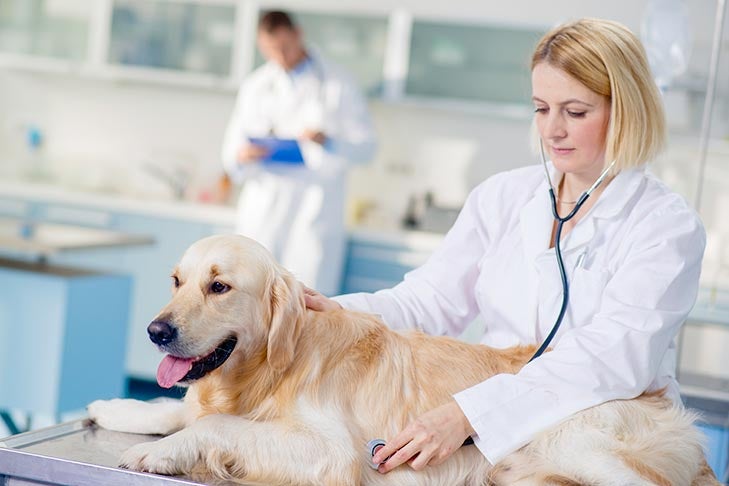
On a microscopic level, your dog’s body is an ecosystem of tiny organisms, such as bacteria and fungi. These minute creatures, or microbes, may seem gross, but many of them are essential for good health. This is particularly true in your dog’s digestive system. For example, the microbiota (community of microbes) in the gut aids in digestion and supports the immune system.
You should know that you’re full of them, too. And your microbiota are equally important to your well-being — so much so that they’re a hot topic in scientific research on everything from anxiety to weight loss. Pigs and mice usually stand in for humans in these weight-loss studies because the diet of animals can be tightly controlled. But a new study shows that dogs might be a better match.
Dr. Luis Pedro Coelho and his colleagues at the European Molecular Biology Laboratory and Nestlé Purina Research examined the gut microbiome of dogs. A microbiome is the full collection of all the genes of the microbes in a microbiota. Just as the human genome is all the genes in the human body, the gut microbiome is all the genes in the microbes of the intestines.
To learn what was happening inside a dog’s gut, researchers looked at what came out. That’s right, they studied poop. DNA can be extracted from poop samples to get a snapshot of the microbiome at that moment in time. Sixty-four dogs pooped for science, including 32 Beagles and 32 Labrador Retrievers. Half of the canines in each breed were overweight, while the other half were a healthy weight, and all the dogs ate the same diet for four weeks before sampling took place.

The overweight dogs and the lean dogs were then randomly divided into two groups for another four weeks. One group ate a high-protein, low-carbohydrate diet, while the other ate a low-protein and high-carbohydrate diet. The microbiome was sampled again to see how diet affected the gut microbes, and the lean dogs were compared to the overweight ones. The microbiome of the overweight dogs changed more in response to the high protein diet than the microbiome of the lean dogs.
This is the same result seen in diet studies of humans. It supports the idea that a “healthy” microbiome, such as that seen in the lean dogs, is more resilient. But the similarity with humans didn’t end there. The researchers also compared the gut microbiome of dogs with the gut microbiome of rats, pigs, and humans. Surprisingly, the dogs were most like humans.
It turns out, the microbes in the guts of dogs are strikingly similar to ours, sharing some of the same species. The researchers note that dogs were domesticated in the early history of modern humans and have shared our food resources the entire time, which is likely why our digestive systems are so alike.
The similar microbiomes and response to diet between dogs and humans means that dogs are likely a far better subject for human nutrition studies than the pigs or mice used today. And the more we learn about the human gut microbiome, the more we can apply that to dogs, such as in the development of commercial dog food recipes for weight loss.
It looks like the contents of our guts and our dogs’ will continue to benefit each other for years to come!

